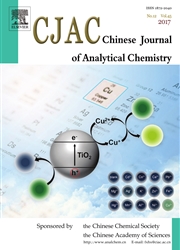

 中文摘要:
中文摘要:
微流控分析系统与宏观条件下的分析体系相比,具有样品和试剂消耗小、传质传热效率高、生物相容性较好、高通量并行分析、功能单元集成化、微型化及自动化控制等特点,在分析化学尤其是生命分析化学领域得到了广泛应用。本文以涉及细胞的微流控技术为切入点,主要介绍了近五年来微流控芯片相关技术的发展,如芯片材料与制作技术、表面改性技术和液滴技术等,并简单总结微流控技术在药物筛选和细胞分析等生命分析化学领域的研究应用进展。
 英文摘要:
英文摘要:
In comparison with with macro analysis system, microfluidic analysis system has many advantages such as small sample and reagent consumption, mass and heat transfer efficiently, good biocompatibility, high-throughput parallel analysis, functional unit integration, miniaturization, and automation control and so on. It has been applied in the analytical chemical, especially in life analytical chemistry. In this review, we mainly focused on the progress of cell analysis related microfluidic technologies during the past five years, such as material and fabrication, surface modification and droplet techniques. Then we briefly summarized the applications of microfluidic techniques on drug screening and cell analysis.
 同期刊论文项目
同期刊论文项目
 同项目期刊论文
同项目期刊论文
 Investigation into the hypoxia-dependent cytotoxicity of anticancer drugs under oxygen gradient in a
Investigation into the hypoxia-dependent cytotoxicity of anticancer drugs under oxygen gradient in a 期刊信息
期刊信息
